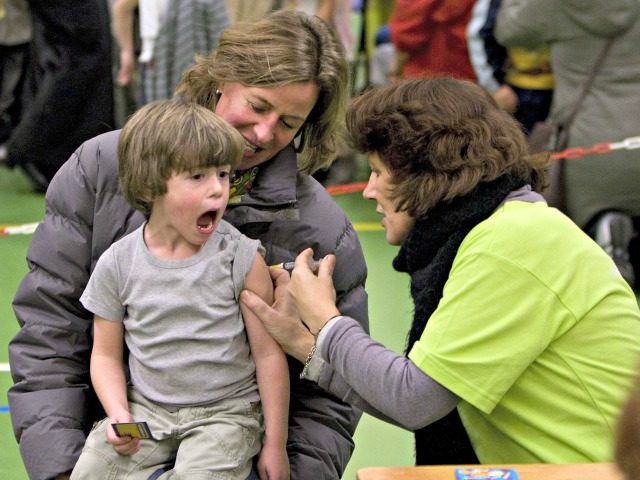Leaders of the U.S. Bishops’ Conference (USCCB) declared Monday that Catholics have a “moral responsibility” to be vaccinated against the coronavirus.
“Receiving one of the COVID-19 vaccines ought to be understood as an act of charity toward the other members of our community,” state Fort Wayne Bishop Kevin Rhoades, chairman of the U.S Bishops’ Committee on Doctrine, and Kansas City Archbishop Joseph Naumann, chairman of the Committee on Pro-Life Activities, in a joint statement.
“In this way, being vaccinated safely against COVID-19 should be considered an act of love of our neighbor and part of our moral responsibility for the common good,” the bishops state.
The risk to public health posed by the coronavirus is very serious, the bishops assert, “as evidenced by the millions of infections worldwide and hundreds of thousands of deaths in the United States of America alone.”
Moreover, “in many cases the most important effect of vaccination may not be the protection it offers to the person who receives the vaccination, who may be of relatively robust health and unlikely to be seriously affected by the disease,” they write. “Rather, the more important effect may be the protection it offers to those who are much more likely to be seriously stricken by the disease if they were to contract it through exposure to those infected.”
The bishops do not make a pronouncement regarding the obligatory nature of all vaccines for all diseases, or where a line might be drawn between vaccines that are optional and those that are morally compulsory. They do, however, offer their judgment regarding the seriousness of the coronavirus.
“The world is currently facing a health crisis,” the bishops state. “The number of deaths from COVID-19 is now almost one and a half million worldwide. In the United States, the toll is approaching 300,000.”
Along with their judgment regarding the morally binding nature of the coronavirus vaccine, the bishops also add an extended reflection regarding the permissibility of using certain vaccines whose germ lines were originally obtained from the cells of aborted human fetuses.
“Given the urgency of this crisis, the lack of available alternative vaccines, and the fact that the connection between an abortion that occurred decades ago and receiving a vaccine produced today is remote, inoculation with the new COVID-19 vaccines in these circumstances can be morally justified,” they declare.
According to a survey conducted by the Pew Research Center in September, about half of U.S. adults (51 percent) say they would definitely or probably get a vaccine to prevent COVID-19 if it were available.
The other half of American adults (49 percent), however, said they definitely or probably would not get vaccinated at the time.
Back in May, intent to get the COVID-19 vaccine was much higher, with 72 percent saying they would get a vaccine when it becomes available.

COMMENTS
Please let us know if you're having issues with commenting.